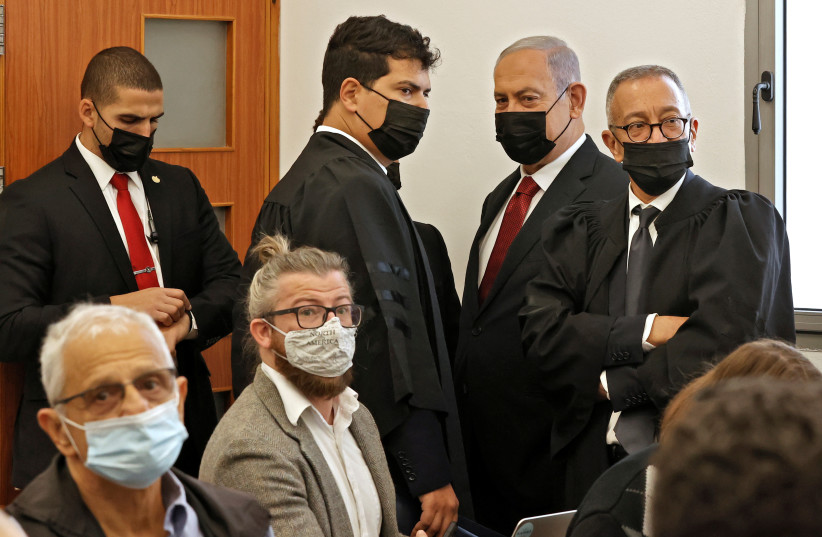If he is lucky, former prime minister Benjamin Netanyahu might still eke out a plea bargain deal with Attorney-General Avichai Mandelblit that will end his political career but help him avoid jail time.
If he does, it will be in spite of his public relations efforts over the last few years that have harmed the chances of a deal and hardened the prosecution team against him.
The truth is that Mandelblit himself would be ready for any deal that allowed the prosecution to seek a finding before a court of moral turpitude, forcing Netanyahu out of politics for seven years – even if there was a risk that the court might rule for Netanyahu.
Mandelblit’s narrative is about avoiding the worst outcome, where someone blames him for either allowing Netanyahu to stay in politics or failing to try in good faith to reach a deal to save the country more heartache if a deal might have been reached.
But this is not the calculation of the prosecution team.

Netanyahu spent years attacking them by name, sending allied reporters and detectives to try to dig up smut about them and to turn them into pariahs in the eyes of the public.
He declared that the prosecution itself was corrupt and politicized, so it became personal and ideological for them.
This may have helped harden his base behind him to stay in office until June, in spite of indictments and trial hearings, but it also turned prosecutors radically against him, who might otherwise see the significant benefits of avoiding the risk of losing at trial.
One can see the fury and anger they have about their treatment when they respond to certain statements by Netanyahu’s lawyers in court.
Normally, it is defense lawyers who perform and turn red in order to impress their clients.
The prosecutors in this trial have gotten at least as angry in fighting over every inch of legal ground throughout the trial.
For them, the issues at stake now are even bigger than Netanyahu himself, and are instead about an unconditional surrender regarding the public narrative.
Whether by plea deal or conviction with jail time, they want Netanyahu or a court to tell the public how right they were, how corrupt he was, and that there is no gray in this story.
This might be a risky strategy, however.
Judge Moshe Bar Am has already sent hints that he may be willing to acquit, and has slammed many aspects of the prosecution’s case.
But they are probably banking on Judge Rivkah Friedman-Feldman to bring along Judge Oded Shaham and possibly even Bar Am to their side in the end.
Friedman-Feldman convicted former prime minister Ehud Olmert, and was more aggressive about convicting and sentencing him than any other judge that dealt with his case.
For them, there is little value to a deal that avoids anything other than an unconditional surrender toward their narrative.
They might be willing to concede on jail time, but they want a win in the eyes of both the court and the public. So Netanyahu’s public relations success, ironically, may do one of two things.
It might force him into a worse plea deal than he might have gotten if he had not attacked the prosecution. If he realizes this is his best-case scenario and agrees to it over the next 11 days, he may still avoid jail time.
Or his public attacks on the prosecution may lead him to no deal and jail. However, if he had not gone on the attack, Mandelblit would have been more than happy simply to get him out of politics to let the country move on.
